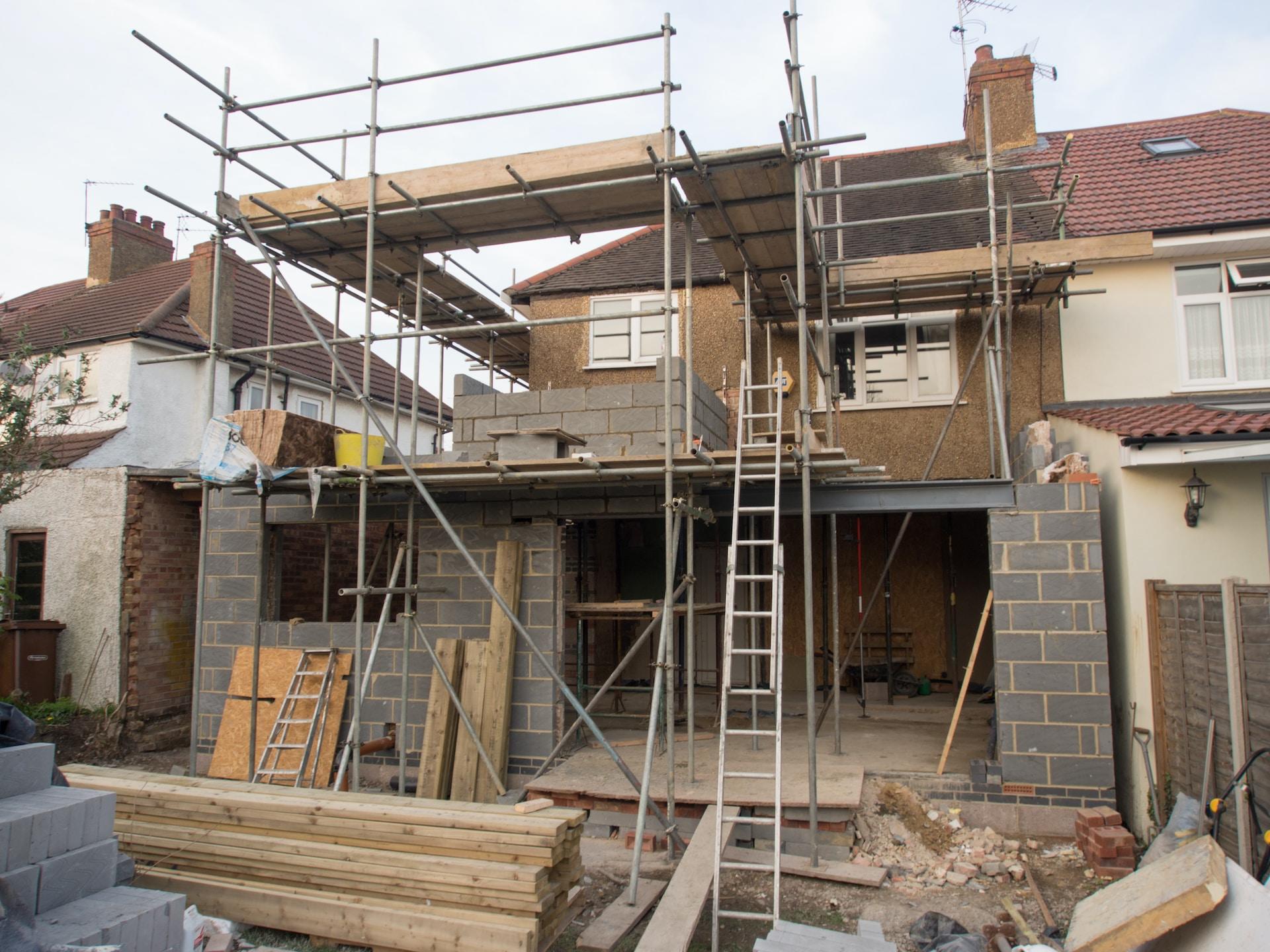Have you seen the meme depicting a richly dressed, good-looking person with a stack of bills in their upturned palm? The other hand swipes at the pile, throwing money at the camera. "Times are good, and I've got money to spare" is the general theme. This article explains how that sentiment helps define the relationship between housing and economic growth.
But that meme doesn't paint the whole picture. Anyone paying attention to economic news and financial times might have felt a shiver of disquiet. Early in June, the Halifax Housing Price Index (HPI) announced that UK house prices had declined. This marks the first time in 11 years that the housing market has shown weakness.
It follows other economic headwinds that have buffeted our nation for the past three years. That's why most people don't need a financial forecast to know that wages are stagnant and their money buys increasingly less. Those with few resources can't afford to think about house prices; they're too busy trying to make their monthly rent. But home prices affect them even though they're not homeowners.
Understanding the relationship between housing and economic growth is essential. This applies to everyone, from government financial advisors to the house poor. So let your Superprof break down:
- why housing is one of the most important economic drivers
- what the wealth effect is
- the wealth effect's impact on the banking sector
- the relationship between renting, owning and economic growth

Understanding the Wealth Effect
Even as the world still creaked under the effects of the Great Depression, Hollywood studios released a film called The Gold Diggers of 1933. The story is pretty derogatory towards women; the plot revolves around showgirls trying to land themselves rich husbands. But the tale has its roots in the crushing economic depression plaguing the nation at that time. It's even a part of the story.
We're in the money! We're in the money! We've got a lot of what it takes to get along!
The Gold Diggers' Song
That sentiment is, in essence, the wealth effect. When one feels secure in their financial status, they become more confident in their ability to withstand economic hard times. They will spend on things that aren't necessities, such as clothing and dining out. This spending provokes economic growth.
The wealth effect entices today's homeowners to borrow against their home's equity to renovate, remodel or add onto their property. They might buy other big-ticket items like a new car or update their home appliances. They might use some of that cash to invest in bonds or stocks. They may use it to return to school and earn a higher-level university degree, thus increasing their earning power.
Owning a home is typically how individuals and families build wealth. The longer they hold their home, the more it's worth. And the higher property values climb within the local area, the more confident in their financial stability these consumers become. And the more they spend, the more fuel they add to the local and global economy.
The wealth effect underpins economic growth. But what happens when home values go down? Consumers are more cautious and less likely to borrow against their home's equity. They'll cut down on unnecessary spending and put off major purchases.
Economists monitor the housing market for signs of economic distress. For instance, property prices started dipping just ahead of the 2008 crash; consumer spending reacted as predicted. The same pattern manifested during UK's 1990 recession. Housing prices across the country fell, and consumers held onto their equity and cash.
The economy bears the effects of housing market fluctuations across every sector and worldwide. When house prices fall, banks tend to make fewer loans. These financial institutions carry most mortgages, so when those decrease in value, the banks' asset levels do, too. And should a homebuyer fall so far behind that the home must be repossessed, the banks may lose money.
Housing market fluctuations also affect new housing development. As banks grow more cagey about lending, developers may not have the financing to build more houses. Less construction means fewer jobs and no building materials bought. Downstream effects such as these tend to slow economic recovery.

Confidence and Banking, Building and Interest
We've already talked a bit about what a loss of consumer confidence does to the banking sector. Now, we must step back to examine a profound change in Great Britain's financial structures. We won't stop as far back as Clement Attlee's government, when everything was nationalised, including housing. The post-Thatcher era - the late 1980s-early 90s, after a decade of privatisation, is the time we need to consider.
That was a time of enormous political and economic upheaval around the world. In the UK, the Thatcher government relied less on fiscal policy - taxation and government spending. That administration relied more on monetary policy to manage the economy. That entails using the Central bank to control money flow in the economy to control inflation.
Throughout the 80s, consumer confidence was high; the wealth effect was substantial. Economic growth, fuelled by consumer spending, drove inflation into the double digits. Accordingly, the Chancellor of the Exchequer kept raising interest rates to try to bring down inflation, which precipitated that recession.
The government established the Monetary Policy Committee (MPC) to get things under control. The MPC aims to keep inflation at a steady rate. Despite their efforts, these actions and events impact the long-uncertain housing market.

Inflation's Impacts on Housing
As the Central Bank raises interest rates, it becomes more expensive to borrow money. Estate developers may shy away from building affordable housing, fearing they won't earn much of a profit. Banks lend at higher interest rates; they also need to make a profit. Those institutions are also less likely to extend mortgages, even to low-risk homebuyers.
The MPC, an organ of the Bank of England, monitors the housing market for price fluctuations. When home prices rise, they raise interest rates to keep consumer confidence in check. This manoeuvre ensures that inflation stays within the desired 2% margin. It also keeps economic growth in check.
Home prices aren't the only indicator the MPC monitors; they look at all economic indicators. And they don't constantly adjust interest rates during housing market booms. For instance, the housing market thrived from the turn of the millennium until early 2007. But the MPC didn't adjust interest rates because, at that time, inflation was steady and spurring economic growth was more urgent.

Housing and Economic Conditions
Government policy plays an outsized role in the housing market. Governments decide where developers may build and the type of housing for each location. For instance, single-family households take up a lot of land, so building lots would not be approved within city limits. Conversely, relying on monetary policy puts much economic control outside the government's hands.
Countries that subsidise their housing markets suffer milder housing market fluctuations. With more than half of its housing stock nationalised, France is one such country. By contrast, the UK boasts a greater rate of property ownership. That represents more incredible individual wealth but makes our country more vulnerable to economic shocks.
The 2008/09 financial crash makes that point. Just ahead of that event, economic growth had held steady for several years, but in 2008, property values tumbled. Homeowners suddenly found their mortgages underwater, meaning they owed more on their houses than they were currently worth. Consumer confidence plummeted, and people stopped spending, further fuelling the downturn.
The UK took far longer to recover from that financial disaster than many other countries. Indeed, economists aver that our nation hadn't fully recovered by the time of the Brexit vote. That turmoil caused economic quakes that grew increasingly more severe over time. When the Coronavirus reached our shores, we had barely begun rebounding from those events' effects.
Some argue that the UK never adequately recovered from the 2008 economic downturn. Data from the housing market proves that assertion. Those data show that we never quite recovered from the 1990 recession, though our housing market maintained steady growth until 2007.
After all those shockwaves - the 1990 recession, the 2008 crash, Brexit and COVID, it's no wonder our economy is struggling. Unemployment and inflation are high and monetary policy seems to have no effect. Rising interest rates have discouraged households from investing in a home and developers from building new houses.
As it's now more difficult for households to qualify for mortgages, homeownership has declined in the UK. One year before the 2008 crash, UK homeownership stood at 77%; today, it's 66%. That's partly due to households being priced out of the market but also because people see renting as a better option. As house prices decline, renters have more financial security, meaning they can help keep the economy stable, if only tenuously.
Summarise with AI:















